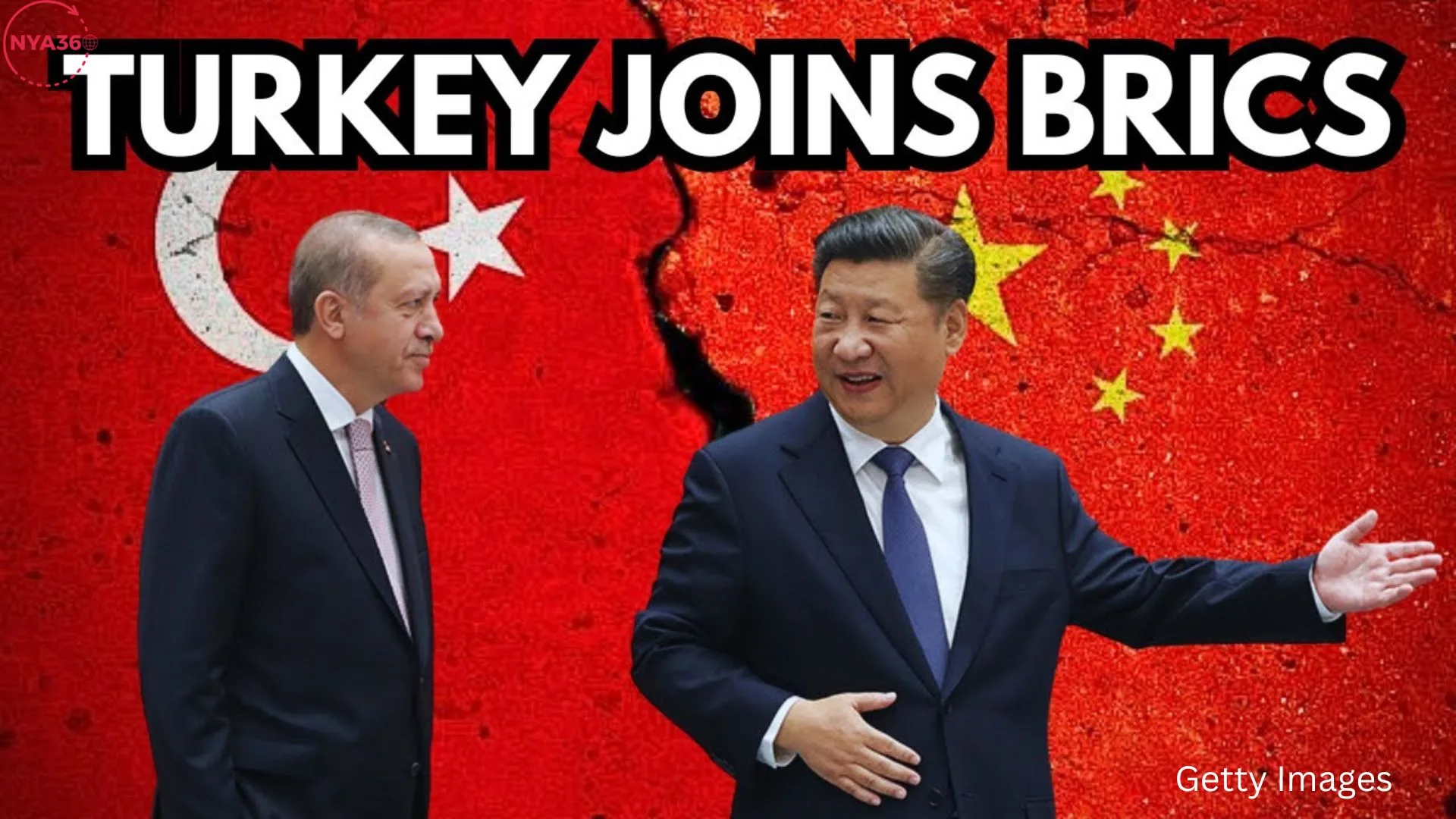Turkey’s recent official request to become a member of BRICS, a coalition consisting of Brazil, Russia, India, China, and South Africa, signifies a possible pivotal moment in the distribution of global influence. If Turkey is accepted, it would be the first member of NATO and EU candidate to affiliate itself with this prominent coalition of emerging economies. This action, which has the potential to fundamentally change the global structure, carries substantial consequences for the worldwide economy, diplomacy, and security.
BRICS was initially conceptualized as an alliance of significant developing economies aiming to contest the supremacy of Western financial institutions and the US dollar in the worldwide economy. The bloc has progressively established itself as a balancing force against the centralized power structures that have traditionally been controlled by the United States and its allies. By incorporating Turkey, a member of NATO and a candidate for the EU, BRICS would enhance its influence and potentially expedite the transformation of the global economic and political scenario.
The primary goals of BRICS are to facilitate economic collaboration, stimulate growth, and revamp global governance frameworks. The member nations of the group possess heterogeneous economies, yet they are united by a shared objective of establishing a more multipolar global order. This desire is highlighted by their growing cooperation in sectors like commerce, banking, and technology. The creation of the New Development Bank (NDB) by BRICS members, to offer an alternative to the International Monetary Fund (IMF) and the World Bank, demonstrates their collective vision.
Turkey’s endeavor to become a member of BRICS is a calculated maneuver by President Recep Tayyip Erdoğan’s government, indicating a wider change in the country’s approach to foreign affairs. In the last ten years, Turkey has endeavored to establish its influence as a dominant force in the region, frequently coming into conflict with its longstanding Western partners on matters such as Syria, migration, and human rights. Turkey’s decision to link itself with BRICS indicates its intention to broaden its international alliances and decrease its reliance on Western nations.

The administration led by Erdoğan has become more outspoken in expressing its discontent with what it sees as the West’s lack of acknowledgment of Turkey’s expanding importance and its valid security concerns. Ankara’s proposal to join BRICS indicates its belief that the global center of gravity is shifting from established economies to emerging markets. This realignment might also be interpreted as a reaction to the European Union’s hesitancy in promoting Turkey’s stagnant efforts to become a member, as well as the continued difficulties within NATO.
The probable inclusion of Turkey in BRICS poses a substantial challenge to both NATO and the European Union. Turkey, as a longstanding member of NATO, has a vital role in the alliance’s strategic positioning, especially in the Middle East and Eastern Europe. The decision to align with BRICS may potentially cause difficulties inside NATO, as the alliance has historically focused on combating Russian and, more recently, Chinese influence. If Turkey were to become a member of BRICS, it might potentially create challenges for NATO’s unity and efficiency, particularly if Ankara begins to align itself more closely with Russia and China on significant geopolitical matters.
Turkey’s shift towards BRICS could exacerbate the already strained relations with the European Union. Since 1999, Turkey has had the status of an EU candidate country. However, its progress towards membership has been hindered due to apprehensions regarding human rights, a decline in democratic values, and concerns about regional security. Turkey’s bid to become a member of BRICS might be seen as an indication that it is becoming skeptical about the EU membership process and is exploring other partnerships. This may prompt a reassessment of the European Union’s stance towards Turkey, perhaps leading to either a renewed commitment or more alienation.
Turkey’s endeavor to become a member of BRICS signifies significant shifts in the global hierarchy. As economies like as China and India gain more influence, the established power structures focused on Western countries are facing more challenges. Incorporating Turkey into BRICS would further the shift towards a more multipolar global landscape, characterized by a more equitable distribution of power among a broader array of participants.

Should Turkey be granted membership in BRICS, it has the potential to inspire other nations, especially those with tense relationships with Western countries, to do the same. This has the potential to give rise to a new coalition of countries that collectively question the current international system. The consequences of such a transition are significant, potentially resulting in alterations to worldwide trade patterns, financial structures, and security agreements.
Turkey’s bid to become a member of BRICS is a courageous decision that demonstrates the country’s changing approach to international relations and the changing balance of global influence. Should Turkey be granted membership, its inclusion in BRICS would not only enhance the bloc’s influence but also indicate a substantial reconfiguration in global affairs. The forthcoming BRICS meeting in Russia in October will be a pivotal occasion, as it has the potential to facilitate Turkey’s inclusion in the organization and thereafter reconfigure the global geopolitical terrain. The probable inclusion of Turkey in BRICS has the potential to initiate a new era in global governance and international relations, which is being closely observed by the world.
Follow us on social media: Instagram, Threads & Twitter X @nya360_ YouTube & Facebook @nya360.





